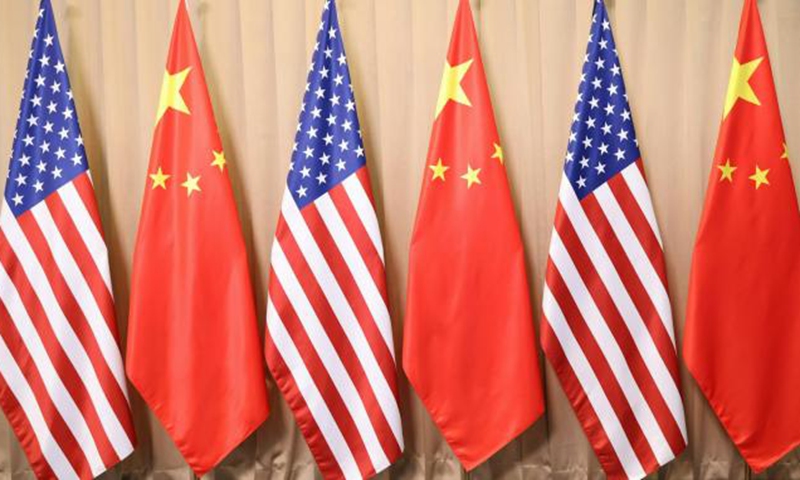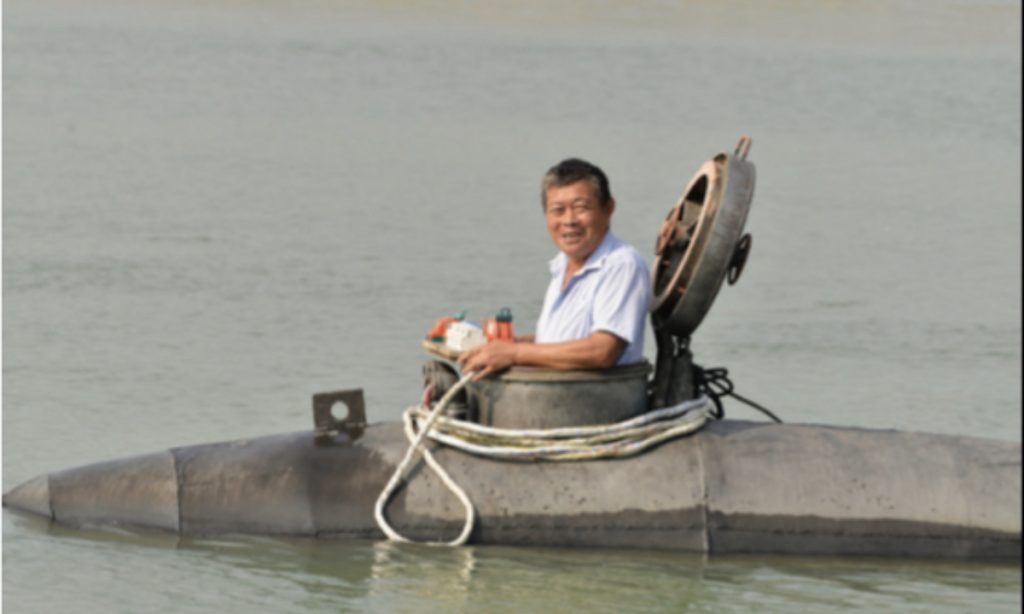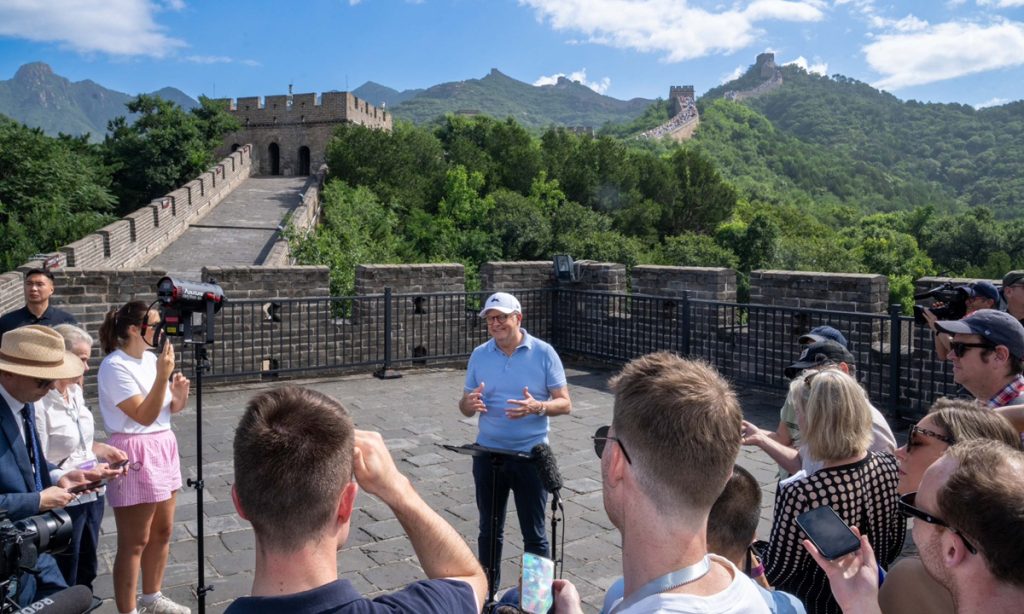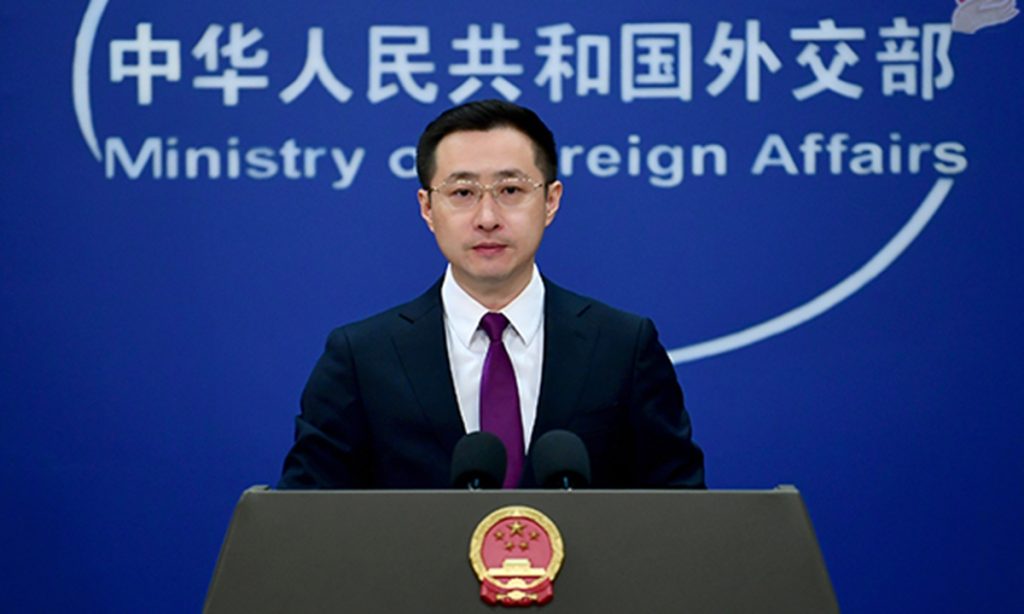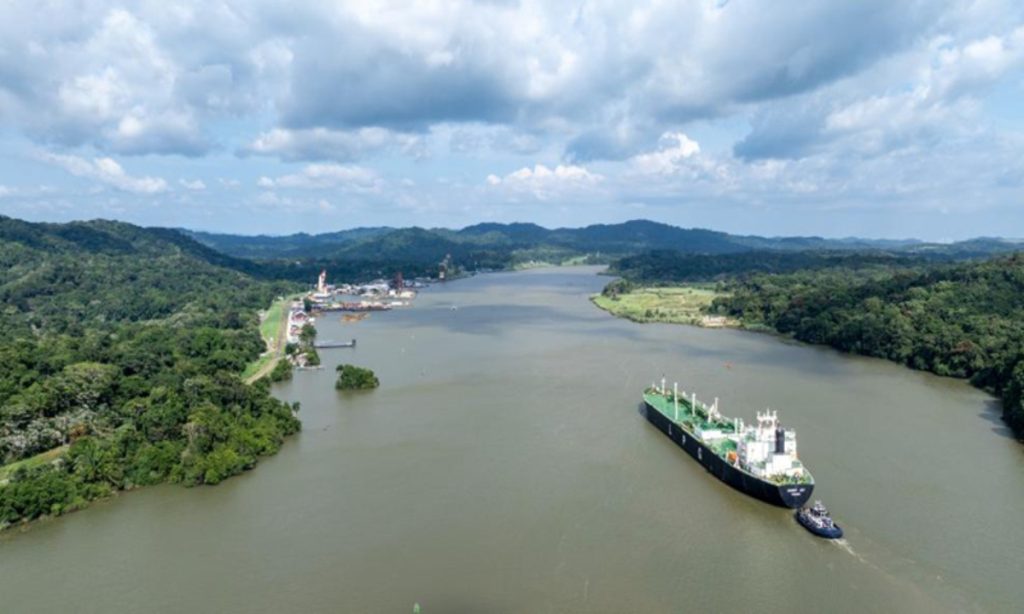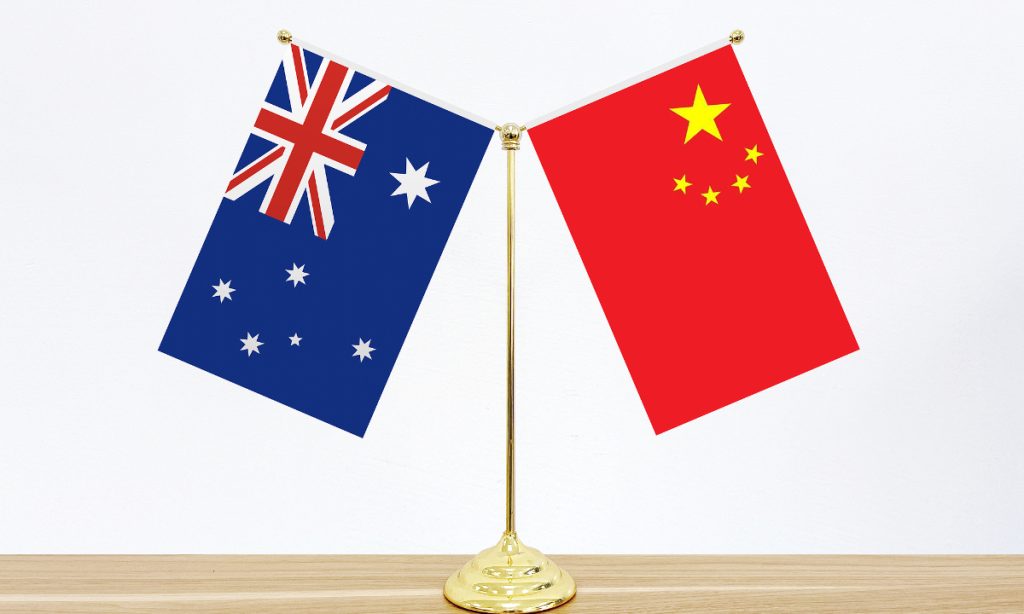Eighty years of selective amnesia: Latest evidence of Japanese invasion crimes lies hidden in Japan

This year marks the 80th anniversary of the victory in the Chinese People's War of Resistance Against Japanese Aggression and the World Anti-Fascist War. Yet in Japan, the concealment of historical truth persists. Why is the Japan's younger generation so severely disconnected from its modern history of aggression? Why do the inquiries raised by a lawmaker and the repentant apologies of a war veteran to China deeply wound Japan? How do Japanese civil forces persist in uncovering the truth under such circumstances? When "irrefutable evidence" collides with "sophistry," when perpetrators deliberately forget, who will preserve the memory for tens of millions of victims?
The Global Times launches the "Uncovering Evidence in Japan" series, engaging in direct dialogue with those involved through exclusive interviews with firsthand witnesses, using the truth as a blade to slice through the silence. Only by confronting and remembering history can we safeguard the peace of the future.
In recent years, new evidence pointing to the various crimes committed by the Japanese invasion forces in China has continued to emerge. This evidence is hidden nowhere else but in Japan itself. For instance, in March, Japanese Communist Party member and House of Councillors member Taku Yamazoe publicly presented historical documents at the National Diet proving that Unit 731 (the Kwantung Army Epidemic Prevention and Water Supply Unit, hereafter referred to as Unit 731), part of the Japanese invasion forces, conducted live human experiments in China. These documents had long been concealed within the National Institute for Defense Studies at Japan's Ministry of Defense.
Another example is that of 77-year-old Japanese man Katsutoshi Takegami, who accidentally discovered his father's past as a member of the Japanese invasion forces' bacterial warfare unit, Unit 1644 (officially known as the Central China Epidemic Prevention and Water Supply Department, originally coded "Unit Ei 1644," abbreviated as Unit 1644), years after his death. The evidence was hidden among the belongings of Takegami's father.
Global Times reporters recently traveled deep into Tokyo and Nagano in Japan, speaking with those involved to learn how Japanese civilian forces confront their government's evasive stance on war responsibility and how they persistently "salvage" history from photo albums and archives.
'No excuse for [Japanese government's] concealment of evidence'
"Time's up!" "Time's up!"
On March 21, during a Budget Committee session of the House of Councillors, Yamazoe, policy commission chair of the Japanese Communist Party and a member of the House of Councillors, raised questions regarding Unit 731. However, the inquiry was forcibly cut short amid repeated calls to wrap up before receiving any direct answers.
Unit 731 established a base on the outskirts of Harbin, Northeast China's Heilongjiang Province, where, under the pretext of disease prevention research and water purification, they conducted inhumane live human experiments. The experiments included bacterial infections, frostbite tests, and poison gas inhalation, with Chinese, Korean, and Soviet nationals used as guinea pigs. While the postwar Japanese government acknowledged "the existence of Unit 731," it evaded further discussion by claiming "no records detailing its activities exist."
During the House of Councillors Budget Committee session, Yamazoe presented, for the first time, a copy of a document titled "observation of skin injuries and general clinical symptoms caused by mustard gas shell bombardment," which summarized the results of five experiments conducted from September 7 to 10, 1940, involving mustard gas shell tests on humans, providing irrefutable evidence against the Japanese government's lies.
Upon investigation, it was found that this detailed record of the Unit 731's human experiments had been donated to the Ministry of Defense in 1964 by former Unit 731 medic Naeo Ikeda. In the comments section of the document upon receipt, the Japanese government explicitly noted, "This is the result of experiments conducted on humans," and "is extremely valuable material."
In his office at the House of Councillors building in Nagatacho, Tokyo, Yamazoe granted his first exclusive interview to Chinese media regarding the Japanese government's deception, showing the Global Times the materials used in the National Diet at that time. He explained that although the Japanese government acknowledged these materials as "official documents," it evaded responsibility by claiming "it cannot confirm objective facts.
More critically, this key piece of evidence was kept hidden for 40 years after being donated to the government in 1964, only being made public in 2004, while the Japanese government continued to falsely assert that "there is no documentation that can indicate the details of the Unit 731's activities," Yamazoe stated. "Why conceal evidence? Why lie? This is the starting point for my decision to raise questions in the Diet."
"On the day of the inquiry, I only had 21 minutes to speak, so the questioning was indeed time-constrained. I asked, 'Was Naeo Ikeda, the donor of the documents, a real person? Did he belong to Unit 731?' These are clear-cut matters - if the government genuinely wanted to answer, it would have done so." Yamazoe told the Global Times that the government was clearly "avoiding answering" questions it did not want to address, while members of the ruling party sought "to cut the inquiry short and hurry things alone by shouting "Time's up!"
Yamazoe explained, "It is certain that the [Japanese] government has consistently claimed it has not found records indicating the specific activities of Unit 731, such as bacteriological warfare and human experimentation, which is obviously a lie. When accused of systematically concealing evidence, the Japanese government has no credible defense."
'All the materials are gone? I don't believe that.'
Unit 1644, based in Nanjing, was another Japanese biological warfare unit that was stationed in China during the wartime. A four-hour drive from Tokyo, Global Times reporters arrived in Komagane City, Nagano Prefecture, where they met with the son of a Unit 1644 member, 77-year-old Katsutoshi Takegami, who adopted his mother's surname.
Takegami's father, Toshiichi Miyashita, married into his mother's family and changed his surname to Takegami. The couple had four children. Takegami recalled to the Global Times, "In my impression, my father was a gentle man with no bad habits. He never hit or scolded us. After the war, he worked at a local health center to make ends meet. I occasionally heard him mention that he had worked in China, but he never said where he went or what he did, and he never mentioned anything about participating in the invasion of China."
Miyashita passed away in 1981. It wasn't until 2017 that Takegami accidentally found his father's belongings in a storage room - a box labeled "Nara Army Hospital" containing several thick photo albums. Among the black-and-white photos were images of his father working in military uniform. Some photos bore inscriptions such as "Epidemic Prevention Section" and "Central China Epidemic Prevention and Water Supply Department."
"I was in deep shock at the time! I really wanted to know exactly what my seemingly ordinary father did in China. What unknown past did he have?" Takegami was determined to investigate, but it was easier said than done. Takegami told the Global Times, "At the beginning, I had no clues at all. I didn't know how to investigate or where to look."
After prolonged investigations, Takegami learned that the "service rosters" (archival documents recording unit member information) of various Japanese units that invaded China had been secretly stored at the Ministry of Health, Labour, and Welfare after the war and kept from public view for a long time. At some point, these documents were transferred to the hometowns of the unit members for safekeeping. Following this lead, Takegami contacted the Nagano prefectural government and obtained his father's "military service record," which listed his father's name as "Toshiichi Miyashita" and his grandfather's name as "Umejiro Miyashita."
"There's no doubt it was my father," Takegami said. Although mentally prepared, when he was confronted with his father's military service record line by line, he still couldn't reconcile it with the father he remembered.
The "military service record" detailed the military career of Takegami's father: Toshiichi Miyashita was born in 1909 to a farming family in Iijima town, Nagano Prefecture. He was conscripted at age 21 in 1930. He participated in the "Manchurian Incident" (the September 18 Incident), was assigned to Unit 1644 established in Nanjing in 1941, and later worked in other parts of China until Japan's defeat, when he returned to Nagano.
To uncover more historical truths, Takegami collaborated with Japanese biological warfare expert and professor emeritus at the Shiga University of Medical Science, Katsuo Nishiyama, among others, to continuously submit applications, ultimately prompting the Ministry of Health, Labour, and Welfare to transfer the rosters of Unit 1644 and two other Japanese bacteriological warfare units - Unit 8604 and Unit 8609 - to the National Archives of Japan in March 2024. It wasn't until March 2025 that these rosters appeared in the newly published document catalog of the National Archives of Japan. Takegami said, "These rosters can prove that these units indeed existed."
"Lacking detailed activity records" has been a common excuse given by the Japanese government to deny the crimes of the Japanese army during its aggression against China. Takegami told the Global Times, "It's true that the Japanese military destroyed a large number of documents when they were defeated, but to say all the records are gone? I don't believe that. Those were all official documents. I believe they must be hidden somewhere." Earlier this year, Takegami accidentally discovered a set of materials titled "medical history of the army in the 'Greater East Asia War'" in a secondhand bookstore, consisting of nine volumes, of which he only purchased volumes one to eight. Volume seven contained detailed records of the activities of the "Central China Epidemic Prevention and Water Supply Department."
"Without understanding the painful past, we cannot prevent war," Takegami warned. "It is a fact that Japan's aggression caused tremendous harm to the Chinese people. It is also a fact that my father was a member of the Japanese military corps that invaded China. I will continue to investigate further to let more people know the truth about this history. This is key to preventing war from breaking out again."
A government that cannot confront history has no right to discuss future
"People may lie, but documents do not," said Seiya Matsuno, a researcher at Meiji Gakuin University's International Peace Research Institute, in an interview with the Global Times.
As mentioned earlier, the documents presented by House of Councillors member Yamazoe in the Diet were originally donated to Japan's Ministry of Defense in 1964 by former Unit 731 member Naeo Ikeda. However, in an August 15, 1984 report by Japan's Mainichi Shimbun, Ikeda claimed that he "absolutely did not want to speak about Unit Ishii" (referring to Shiro Ishii, the founder and commander of Unit 731 - editor's note), and insisted that he "was not transferred to Unit 731 until 1942" and "did not participate in any experiments."
"Ikeda lied. His records show he was already in Unit 731 in Showa 15 [1940]," Matsuno said. Furthermore, the materials Yamazoe used in the Diet clearly documented Ikeda's personal history: He served as a medical major in Unit 731 from July 1940 to November 1942.
Matsuno stated, "Testimonies are certainly important. However, as time passes, there are issues of memory blurring. When discussing facts of perpetration, testimonies may lack objectivity - as seen in Naeo Ikeda's case where he claimed non-participation despite actual involvement while attempting to distance himself. Therefore, we must persistently unearth historical materials to verify the veracity of testimonies or supplement them, thereby drawing closer to the truth."
Matsuno was born in 1974. While in high school, he accidentally learned about the Japanese military's use of poison gas during the war of aggression against China, which became the impetus for his more than three-decade self-funded research into the Japanese invasion forces' chemical warfare, biological warfare, and related subjects.
Unearthing historical materials in Japan is no easy task. Matsuno told the Global Times, "Since my graduate school days, I've frequented archives and libraries, examining materials from morning till night. Back then, there were no electronic catalogs - I had to flip through card catalogs one by one, often ending up empty-handed." Moreover, the greater challenge lies in the fact that searching for, analyzing, and collecting materials requires first knowing that a particular historical event even occurred- otherwise, one would never think to investigate it. Since his student days, he had never encountered any mention of Unit 731 in textbooks.
"I don't know exactly what yet, but I believe undiscovered evidence still exists in Japan," Matsuno said. To ensure people understand the horrors of war and the true history, researchers must keep striving to unearth materials and restore historical truth.
"A government that cannot confront history has no right to discuss the future," Yamazoe told the Global Times. "If a country fails to clearly acknowledge its past wrongs, it cannot prevent repeating them." He believes that acknowledging facts and offering apologies based on those facts is essential, noting that no country can claim an inability to apologize solely due to "the passage of too much time," whether decades or even a century later.
